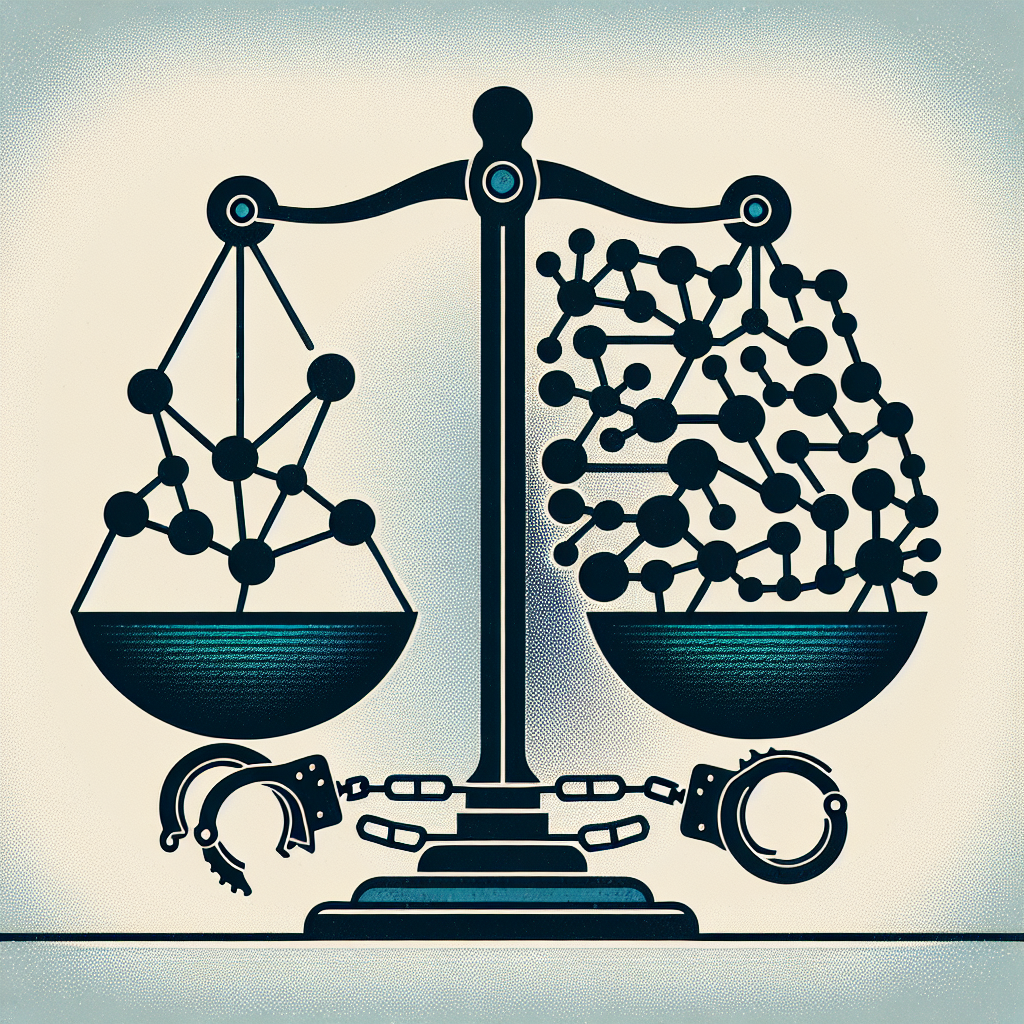Artificial intelligence (AI) has revolutionized various industries, including criminal justice. From predictive policing to sentencing algorithms, AI has the potential to both improve efficiency and raise concerns about fairness and ethical implications. As AI continues to play a more significant role in the criminal justice system, it is essential to consider the legal and ethical implications of its use.
Legal Implications of AI in Criminal Justice
The use of AI in criminal justice has raised a myriad of legal questions. One of the primary concerns is the potential for bias in AI algorithms. AI systems are only as good as the data they are trained on, and if this data is biased, it can lead to discriminatory outcomes. For example, if a predictive policing algorithm is trained on historically biased data, it may unfairly target certain communities or individuals.
Several legal challenges have arisen regarding the use of AI in criminal justice. For example, in the United States, there have been cases where defendants have challenged the use of AI-generated evidence in court. Courts must determine whether the algorithms used in these systems are reliable and whether they meet the legal standards for evidence admissibility.
Additionally, there are concerns about transparency and accountability when it comes to AI in criminal justice. Many AI algorithms are considered “black boxes,” meaning that their decision-making processes are not easily understood. This lack of transparency raises questions about due process rights and the ability for defendants to challenge the evidence against them.
Furthermore, there are issues surrounding privacy and data security in the use of AI in criminal justice. AI systems often rely on vast amounts of data, including personal information about individuals. There are concerns about how this data is collected, stored, and used, as well as the potential for data breaches and misuse.
Ethical Implications of AI in Criminal Justice
In addition to the legal challenges, the use of AI in criminal justice raises ethical concerns. One of the most significant ethical dilemmas is the potential for AI to perpetuate and even exacerbate existing biases in the criminal justice system. If AI algorithms are built on biased data, they can perpetuate discrimination against marginalized groups.
There are also concerns about the lack of human oversight in AI systems. While AI can streamline processes and improve efficiency, it can also lead to a lack of human judgment and empathy in decision-making. This raises questions about the ethical implications of delegating important decisions to machines.
Moreover, there are concerns about the potential for AI to infringe on individuals’ rights and freedoms. For example, there have been cases where individuals have been wrongly targeted or detained based on faulty AI-generated evidence. This raises questions about the balance between security and civil liberties in the use of AI in criminal justice.
Another ethical concern is the potential for AI to erode trust in the criminal justice system. If individuals believe that AI systems are making decisions that are unfair or biased, it can undermine confidence in the system as a whole. This can have far-reaching implications for the legitimacy of the criminal justice system and the rule of law.
FAQs:
Q: How is AI used in predictive policing?
A: Predictive policing uses AI algorithms to analyze data and identify patterns that can help law enforcement agencies anticipate and prevent crimes. However, there are concerns about the potential for bias in these algorithms and the impact on communities of color.
Q: Can AI be used in sentencing decisions?
A: Some jurisdictions have started using AI algorithms to assist judges in making sentencing decisions. However, there are concerns about the potential for bias in these algorithms and the lack of transparency in how these decisions are made.
Q: What are some of the challenges of using AI in criminal justice?
A: Some of the challenges of using AI in criminal justice include bias in algorithms, lack of transparency and accountability, privacy and data security concerns, and ethical dilemmas surrounding human oversight and decision-making.
In conclusion, the use of AI in criminal justice has the potential to improve efficiency and effectiveness in the system. However, it also raises significant legal and ethical challenges that must be addressed. As AI continues to play a more prominent role in criminal justice, it is essential to consider these implications and work towards solutions that uphold fairness, transparency, and accountability.

